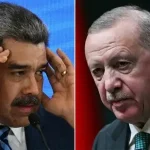STOCKHOLM: According to a top executive, Google’s Jigsaw subsidiary is launching a new anti-misinformation project in India to stop false information from being blamed for inciting violence.
The initiative will make use of videos called “prebunking,” which are made to refute false claims before they are widely shared on the company’s YouTube channel and other social media platforms.
In contrast to Twitter, which is cutting its trust and safety teams despite new owner Elon Musk’s assurances that it will not become a “free-for-all hellscape,” Google’s efforts to combat misinformation spread.
In the wake of the Russian invasion of Ukraine, Google recently carried out an experiment in Europe to try to combat online narratives that were hostile toward refugees. The experiment in India will have a larger scope because it will deal with multiple local languages, including Bengali, Hindi, and Marathi, and it will cover different parts of the country, which has more than a billion people.
Beth Goldberg, Jigsaw’s head of research and development, stated, “This presented an opportunity to research prebunking in a non-western, global south market.”
In India, as in other nations, false information spreads rapidly, primarily through social media, causing political and religious strife.
Google, Meta, and Twitter have been urged by Indian officials to intensify their efforts to combat the spread of fake news.
The Ministry of Information and Broadcasting (I&B) has used “extraordinary powers” multiple times to block YouTube channels as well as some Twitter and Facebook accounts that are said to be used to spread harmful misinformation.
Additionally, inflammatory messages have spread via Meta’s WhatsApp messaging service, which has more than 200 million Indian users. After false claims about child abductors led to the mass beatings of more than a dozen people, some of whom died, the company restricted the number of times a message could be forwarded in 2018.
Jigsaw will produce five videos in three languages in conjunction with the Alfred Landecker Foundation, a German pro-democracy organization, the philanthropic investment firm Omidya Network India, and a number of smaller regional partners.
After watching the videos, viewers will be asked to complete a brief, multiple-choice survey to see how much they know about false information. According to the company’s most recent study, watching such videos increased viewers’ ability to spot false information by 5 percent.
Goldberg added that the Indian initiative will concentrate on issues that are popular in the nation.
“They gain resilience to being misled in the future by forewarning individuals and equipping them with the ability to identify and refute misleading arguments.” In the summer of 2023, the results are expected to be published.








